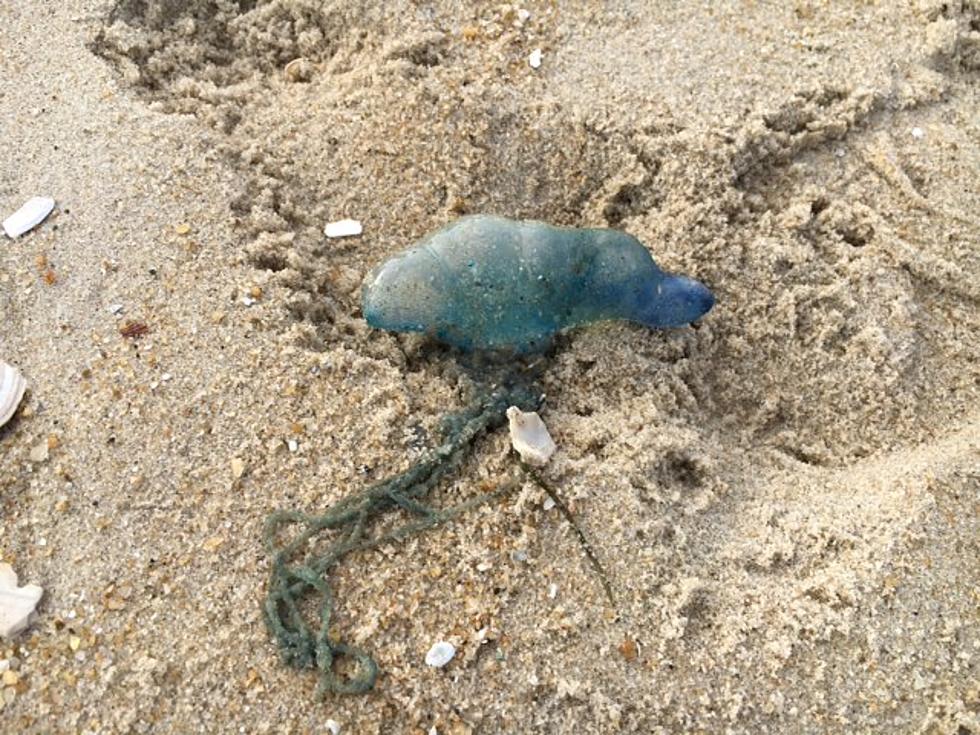
Unusual Sea Creatures Could Become Common at Jersey Shore
Unusual, southern species of sea animals, like the Portuguese man-of-wars that have been washing up at Jersey Shore beaches this season, are expected to become more common as climate changes and waters warm, according to Dr. Stan Hailes of the Barnegat Bay Partnership.
"Right now the surface temperatures across the entire Mid-Atlantic are fairly warm and I think with the off-shore wind patterns, they're just being transported up onto the shallower waters and blowing up onto the beach," said Dr. Hailes.
In addition to Portuguese man-of-wars, Hailes noted his group has seen some other coastal, tropical, oceanic species in the bay.
"A gentleman sent us a picture of a four-foot long Caribbean Needle Fish the other day. This thing probably weighed 5, 7, 8 pounds, something like that. It was just a single animal, but it was very, very impressive and we've heard some rumors of some other things, but nothing yet that we've been able to verify," Hailes said.
He pointed out the Portuguese man-of-war is a species you should be concerned about, because they are so uncommon and people don't recognize them.
"They pack a very, very potent sting that's really bad for pretty much everybody, but especially for small children because the animal can wash up onto the sand. The tentacles can be very, very long. We're talking about 10-15 feet king of thing and even after the animals dies, some of the tentacles can remain alive and still pack a very potent wallop," cautioned Hailes. He added, the animals are pretty and iridescent, bright blue, green, yellow and pink.
Sea Nettle jellyfish have become common in Barnegat Bay over the last several years and usual increase their presence as the the water warms up. Hailes said samples and data from the northern half of the bay shows Sea Nettles have been later and much more restricted in their distribution this year.
"We're finding them really only abundant from like Silver Bay north, up into the lower Metedeconk, over Lavalette and that area, but as water does warm up, we do expect them to spread out and become more abundant in some other places," said Hailes.
Research into the biology of Sea Nettles in the last few years suggests there is a way to help curb the Sea Nettle population, according to Hailes.
"The New Jersey Department of Environmental Protection (NJDEP) is asking people to remove floating docks in the winter," he said. Hailes explained the attached stage of the animal shows a preference for artificial substrates during winter.
"So you could have lots of polyps on the underside of a small, floating dock that could give rise to millions of jellyfish in the bay," he said.


